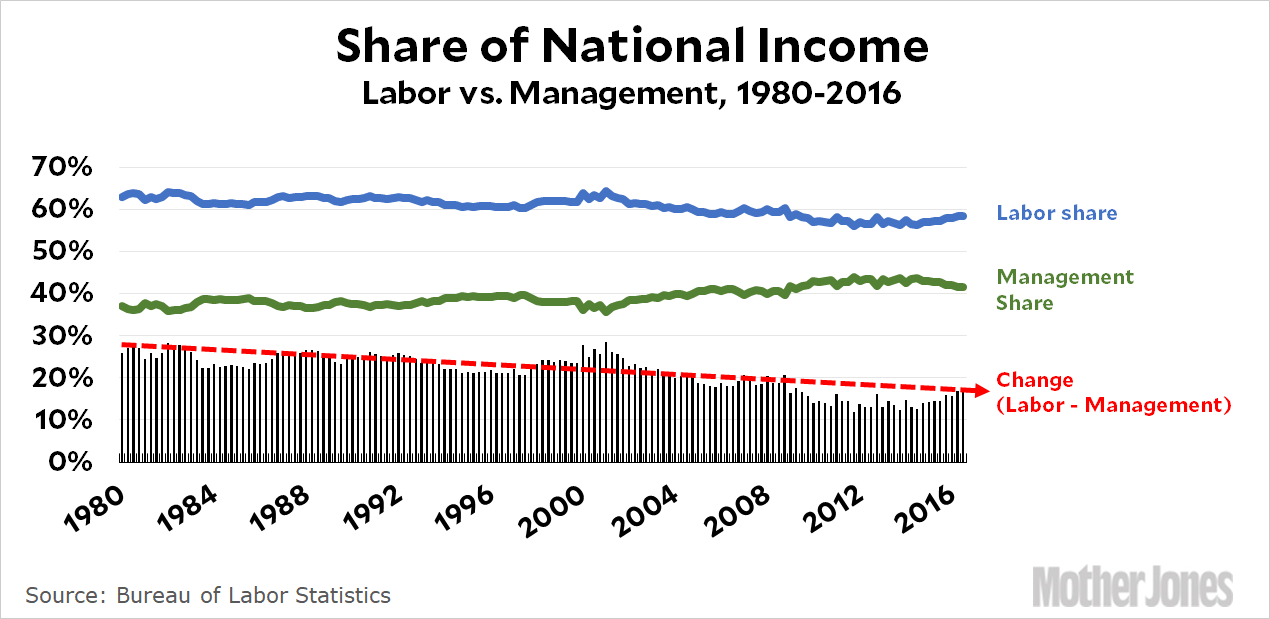Sen. Elizabeth Warren thinks big corporations have too much power, so next week she’ll be introducing new legislation to address that:
That’s where my bill comes in. The Accountable Capitalism Act restores the idea that giant American corporations should look out for American interests. Corporations with more than $1 billion in annual revenue would be required to get a federal corporate charter. The new charter requires corporate directors to consider the interests of all major corporate stakeholders—not only shareholders—in company decisions. Shareholders could sue if they believed directors weren’t fulfilling those obligations.
This approach follows the “benefit corporation” model, which gives businesses fiduciary responsibilities beyond their shareholders….My bill also would give workers a stronger voice in corporate decision-making at large companies. Employees would elect at least 40% of directors.
Warren’s basic idea is that workers have lost power over the past few decades and therefore have seen sluggish wage growth. At the same time, this has allowed management and shareholders to pocket the rising profits of corporations since they don’t have to fight workers for a bigger share. She’s certainly right about that. Labor and management shares of income vary a bit during booms and recesssions, but the overall trend since the Reagan era is crystal clear:

But here’s the thing I don’t get. Warren’s theory is that this has happened largely because workers have lost negotiating power over the past four decades. Even conservatives, I think, wouldn’t argue too strongly against this notion. It’s pretty plain that the demise of unions has stripped workers of wage bargaining power and this has reduced their ability to claim the same share of overall corporate income that they used to.
But if that’s the case, why introduce a bill that primarily changes the composition of corporate boards? My objection isn’t that it won’t work. It might. But we know that making it easier for workers to unionize would work, and Republicans will fight just as hard against one as the other. So why choose an oddball proposal that sounds European and vaguely socialist even to the American working class?
Why not instead propose a truly simple and powerful proposal to boost unionization throughout the American economy? If your goal is to increase the power of the working class, this is the way to do it. It’s been done in America before, notably during the “Golden Age” of the 40s and 50s when America was supposedly greater than it is now. It produced a strong economy. It didn’t pauperize the rich. It’s easy for workers to understand. And you’re going to need a Democratic president and 60 Democratic senators to pass it, just like Warren’s bill. If the Democratic Party is ready for Warren’s new idea, it’s ready for my old idea. What’s not to like?














